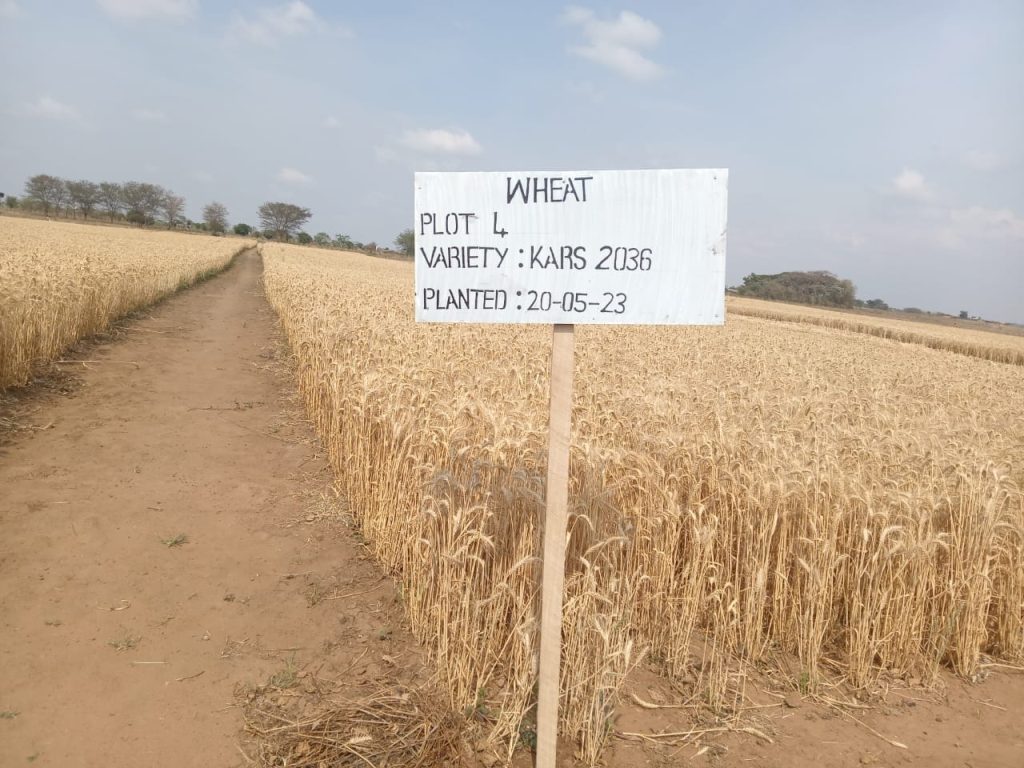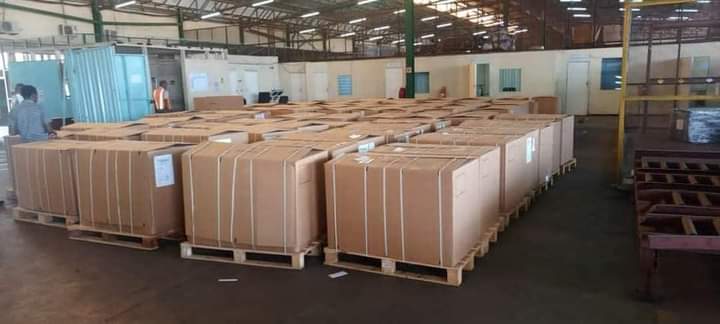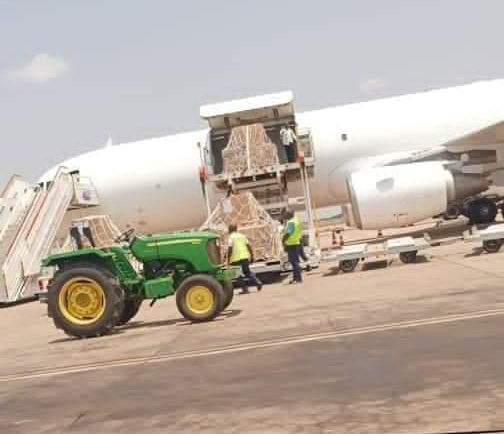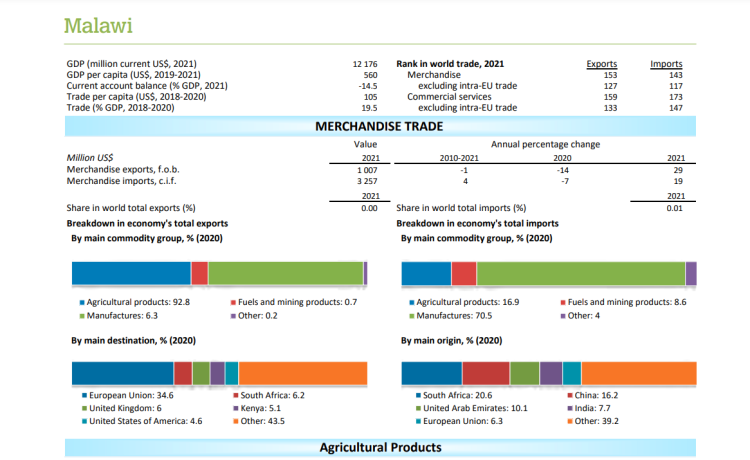President Chakwera’s agriculture policy, as embedded in his manifesto, appears to be gaining unprecedented momentum as it is set to change the game for Malawi.
Yesterday, Friday 20th October, 2023, the President witnessed a first-ever large-scale wheat production output through mega farming irrigation initiative. On his way to Kasungu district where he went to launch the 2023 Agriculture Input Program (AIP), the President branched off to Mpale Wheat Farm in Dowa district where initial harvesting was taking place.
In his statement, President Chakwera remarked that owing to this particular large-scale wheat production which is estimated to yield not less than 90,000 metric tons, Malawi’s annual wheat import will be reduced by half and serve about $20 million of forex.
“We will also reduce wheat import by half thereby saving close to US$20 million worth of forex demand,” he said.

Official statistics disclose that in 2021, Malawi imported $44.4M in wheat, becoming the 108th largest importer of wheat in the world that year. At the same year, wheat was the 4th most imported product in the country.
Further, in the year 2020, total forex that went towards importing wheat was $38.7 million while the years 2019 and 2018 drained forex amount of $54.8 million and $51.3 million respectively.
During the 2019 presidential bid campaign, President Chakwera pledged his leadership philosophy anchor styled as SUPER HI5.
These high five items forming his broad agenda through the acronym SUPER include Servant leadership (S); Uniting Malawi (U); Prospering together (P); Ending corruption (E); and Rule of Law (R).
Under the Prospering together mission, Chakwera, through the MCP manifesto, pledged a number of targeted initiatives and projects including agricultural transformation that would not only lead to food security but also serve commercialization purposes for export targets.
Chakwera bemoaned that agriculture’s contribution to GDP had declined, yet the sector remains a key driver of the country’s economy, thereby saying ‘there is high need to re-invent the sector’.
Chakwera transmitted his vision in stating that increasing agricultural surplus is necessary to accumulate capital and increasing foreign exchange via exports.
Although Malawi’s economy is mainly anchored by its agriculture output on specialized crops such as tobacco, tea, coffee and groundnuts among others, the country still imports other agriculture commodities such as wheat for its own diversified food needs.
Increasing production capacity of such crops fell within Chakwera’s vision in revolutionizing agriculture with an aim of minimizing imports that would lead into saving forex.
Outlining his comprehensive program of agricultural transformation aimed at setting the stage for fundamental structural transformation and sustainable development, Chakwera also pledged to introduce the production, value addition and marking of industrial and medicinal hemp in Malawi.
Reflecting the implementation of this promise and desire, 15 tons of Malawi’s industrial hemp from Chitedze Research Station was exported to Macedonia on Wednesday, 6th October 2023, via Kamuzu International Airport, marking the beginning of the hemp export industry in Malawi.















